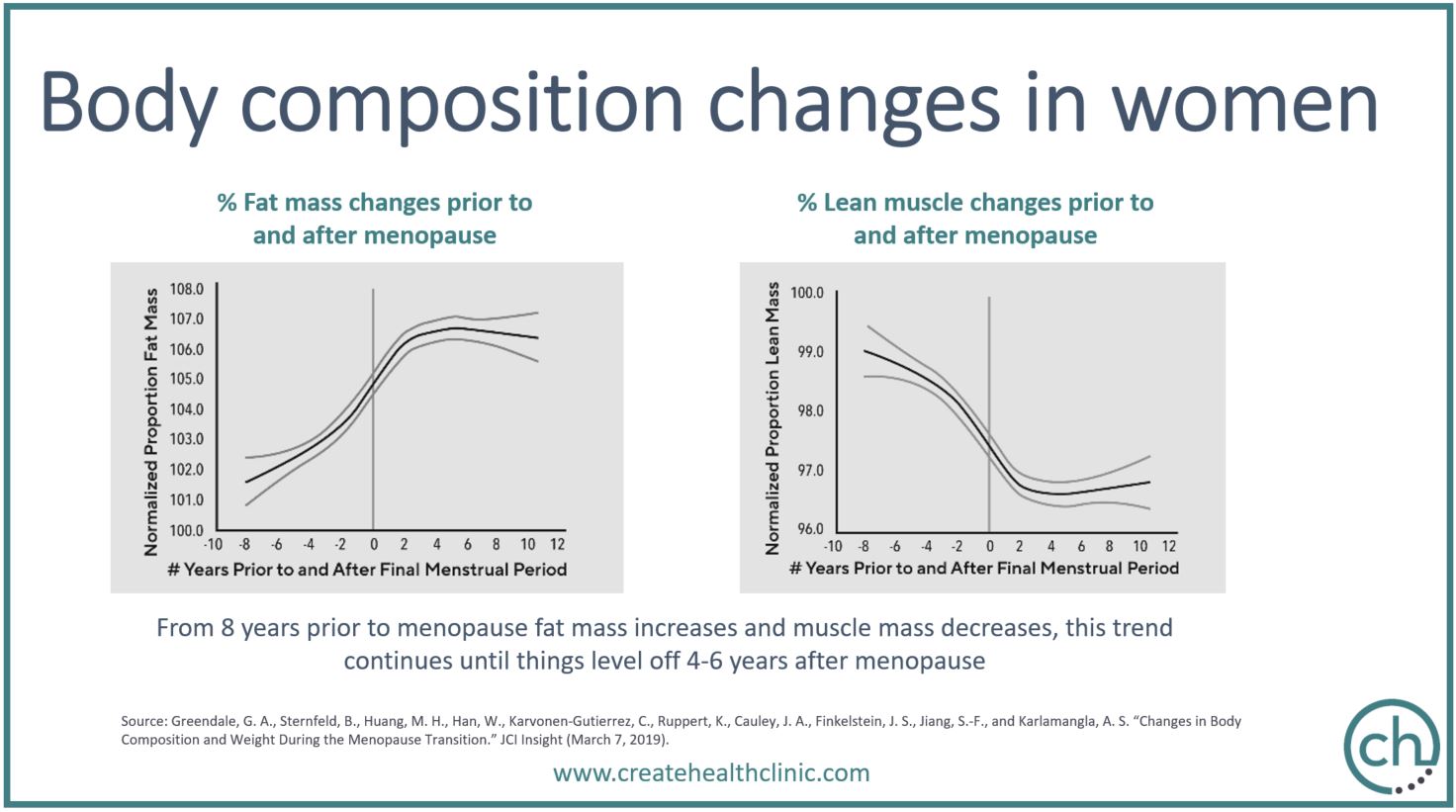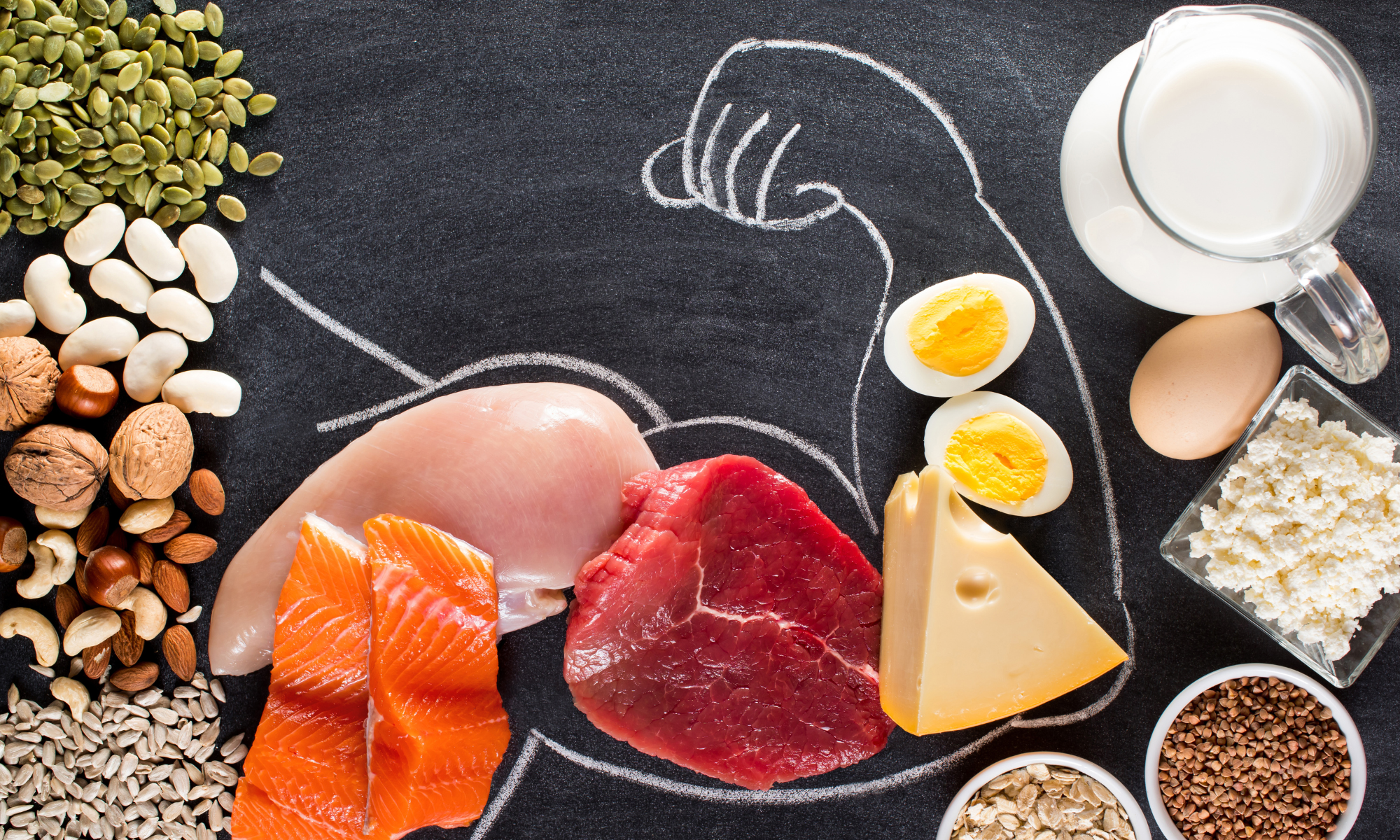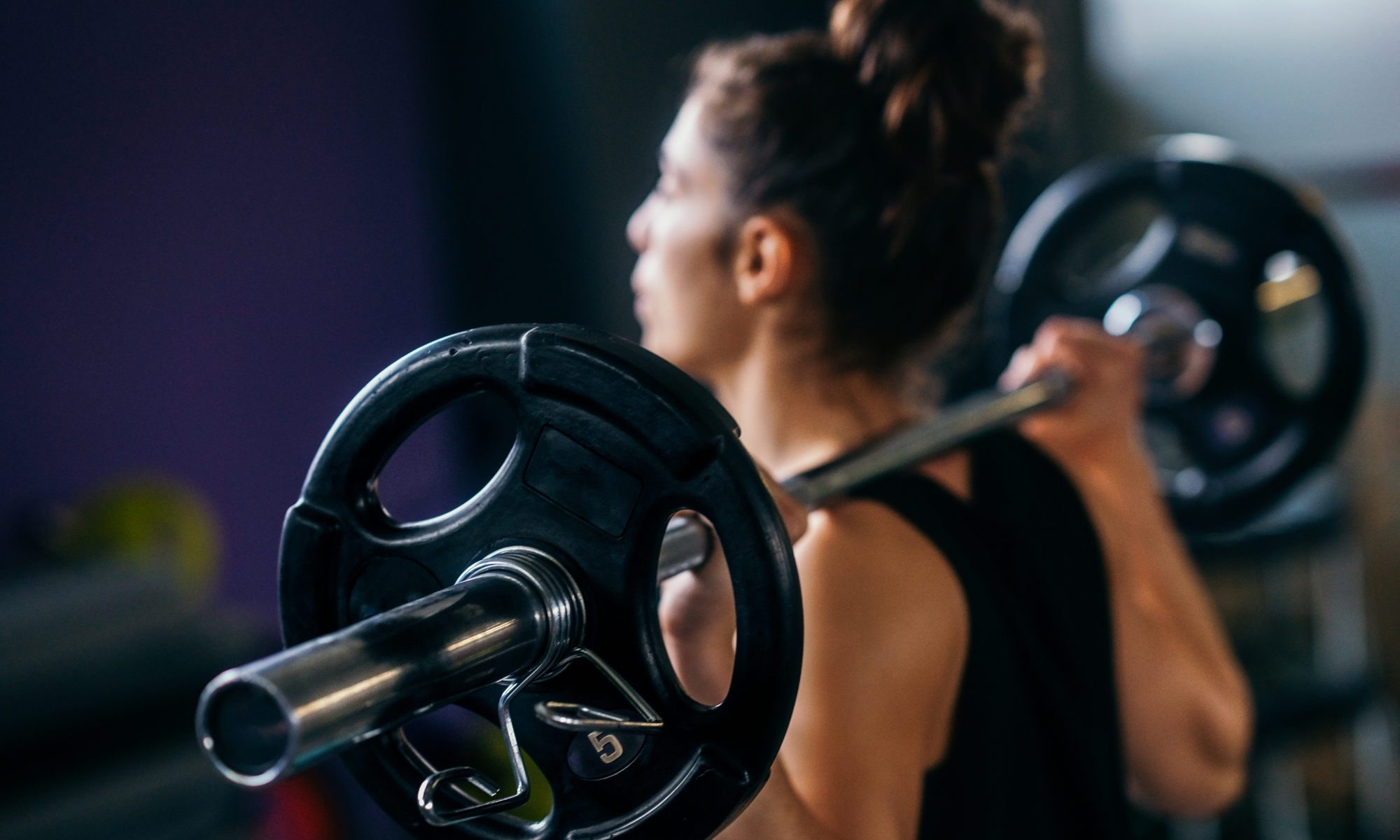Menopause Masterclass - 8 Nutrition Tips for a Stronger Body
30 Jan 2024

I’m in my 50th year of life and firmly believe that with a committed and consistent approach to healthy nutrition and lifestyle habits we can all discover our power and potential, and really be our strongest, best selves through and beyond menopause.
But yes, it can be tough. Lots of us women in our forties and fifties find that, even if we're reasonably fit and feel that we're eating well, we may frustratingly see and feel our lean muscle visibly being replaced with softer fat tissue. We can start to notice feeling physically less strong doing day to day tasks. And if we exercise regularly, we may start to notice that the fitness gains we make can be small or non-existent.
So why does this happen? What are the long-term health implications? And is there anything we can do about it?
Hormonal Triggers for Body Composition Changes
Peri-menopause usually begins in our early forties and can last 8 - 10 years, These are the years preceding when your periods finally stop. During this phase changes to your menstrual cycle start to happen. These changes may be subtle at first - length altering a day or two here and there, period flow slightly heavier, but not so much that you'd notice. You will start to have anovulatory cycles (no ovulation) resulting with no progesterone being produced during some cycles, leading to overall lower total progesterone. Simultaneously oestrogen production starts to go on a rollercoaster, fluctuating wildly from one minute to the next. Oestrogen production through peri-menopause will tend to be higher overall. And to top that off, a women's testosterone levels start a slow decline from about age 35! What!?
Summary of Hormonal Changes:
• Anovulatory cycles of increasing frequency (no/lower progesterone)
• Fluctuating oestrogen eventually leading to very low levels
• Slowly declining testosterone levels from mid-thirties onwards
Downstream Effects
Since progesterone offsets the effects of oestrogen this double whammy of higher oestrogen and lower progesterone can start to cause symptoms including heavier periods, worsening PMS, periods cramps, mood swings and low mood, anxiety, joint pains and tendon injuries, fibroid development, and poor sleep. In fact mood-related disorders can be one of the commonest early symptoms of this process, but are often missed (or misdiagnosed) due to a women's age e.g. you may be early to mid-forties and still have 'regular' periods and will be assumed 'too young' for it to be menopause-transition related.
As we progress through our forties further symptoms can start to develop as a result of these hormonal imbalances. Common ones are weight gain around the middle (waistbands getting tight anyone?) and difficulty gaining muscle/ losing muscle. We might also start to have signs of blood sugar imbalance such as feeling 'hangry' or faint between meals and have greater circulating insulin levels (our fat storage hormone). Hot sweats or ‘flashes’ as they are politely termed may become a real issue during the day and/or at night.
Additionally the disruption to our hormonal balance triggers the release of excess cortisol, a stress hormone from the adrenal glands. Cortisol breakdown muscle and promotes fat storage, so add this extra push of cortisol to that caused by our already stressful lives and possibly poor sleep and say hello to the perfect recipe for muscle breakdown and fat gain.
This process can be seen in the charts below that show the fat mass % and muscle mass % changes for women prior to, during, and after menopause.

Source: Greendale, G. A., Sternfeld, B., Huang, M. H., Han, W., Karvonen-Gutierrez, C., Ruppert, K., Cauley, J. A., Finkelstein, J. S., Jiang, S.-F., and Karlamangla, A. S. “Changes in Body Composition and Weight During the Menopause Transition.” JCI Insight (March 7, 2019).
Risks for Long-term Health
The symptoms of menopause-related hormone changes can go on for many years and, for lots of women, be increasingly debilitating and have a significant effect on quality of life. Additionally, it’s important to also consider protecting our long-term health.
Muscle tissue is a big sponge for the sugar and carbohydrate energy we consume from food, so when we lose muscle our metabolism reduces and we have a higher risk of developing Type 2 Diabetes. Muscle and oestrogen are also critical for maintaining bone strength and the loss of both can put us at risk of osteoporosis.
Additionally we know that having long-term higher blood sugar, insulin and cortisol creates excess levels of inflammation in the body which is thought to increase our risk for cognitive decline, cardiovascular disease and cancers.
So as you can see, whilst there is nothing wrong with caring about our appearance, there are a lot more health implications of these hormonal and body composition changes than just looks.
It doesn’t have to be like a Disaster Movie!
So at this point you're probably thinking that what I have described about menopause is like watching James Cameron's Titanic movie - an inevitable slide into the abyss! Thankfully, it certainly doesn't have to be. There are lots of things we can do to get in control and have a smoother menopause transition with fewer debilitating symptoms. We can also take action to help maintain a healthier body composition with good muscle mass and bone density so we can have a strong and resilient old lady body, which is way more important than just considering what we look like in the mirror.
Wherever you are in your hormone transition, the best time to start implementing nutrition and lifestyle changes is right now. Remember, it's never too early, and it's also never too late to make progress!
8 Tips to Balance Hormones and have a Healthy Body Composition
1. Commit to Starting Now and Being Consistent
Getting ahead of symptoms developing is likely going to mean a smoother ride. The more balanced your body and your hormones are in your late-reproductive years, the more balanced will be your transition through and into menopause. Healthy daily habits = healthy you.

2. Quit Highly Processed Foods and Stop Drinking your Calories
Start buying ingredients and cooking rather than relying on pre-packaged convenience foods and takeaways. Make it manageable by introducing just 1 new recipe a week until you have 10 to 12 go-to recipes. Swap drinks containing sugar for water or herbal teas. Stop using plant milks containing sugar in tea and coffee. This will reduce your intake of sugar and unhealthy fats.
3. Balance your Blood Sugar
Balanced blood sugar requires less of the hormone insulin which helps to reduce fat tissue gain around the middle. Start by eating at least a palm-sized portion of protein at 3 meals a day and filling up on above-ground vegetables, with some root vegetables, beans and pulses too. Along with being essential for blood sugar balance, the amino acids from protein are essential building blocks for everything in your body including hormones and your muscles.

4. Prioritise Sleep and Honour Rest
Lack of quality sleep and not taking time to rest will continuously trigger your fight-flight nervous system. This increases cortisol production and favours fat storage and muscle breakdown. Get to bed early, stop scrolling your phone, and get outside during daylight hours. Take quiet time to rest during the day, even for just a quiet cup of tea. Exhaustion is not badge of honour.
5. Lift Weights and reduce Cardio
To build muscle and prevent muscle wastage you will need to lift weights. If you have never lifted weights before, consult a qualified fitness professional for guidance to avoid injury. Consistent strength work is key. If you are in Leeds then checkout Fitcure for expert advice. Cut back on excessive cardio workouts since these raise cortisol. Instead, between strength training, start brisk walking daily which is a low cortisol form of exercise.

6. Reassess your Relationship with Alcohol and Caffeine
Alcohol raises cortisol, worsens anxiety and disrupts sleep, not to mention to the high sugar content. Alcohol makes all your symptoms worse so it's really worth looking at this. Swap to no alcohol gins, wines and beers, or try Kombucha. The 30-day alcohol experiment can help you. Caffeine also triggers cortisol and disrupts sleep - try 7-days without caffeine to see what the effects are for you. Switch to decaf and herbal teas and limit caffeine to 1 - 2 cups before noon only.
7. Eat Healthy Fats and include Anti-Inflammatory Foods
Eat healthy fats from olive oil, olives, eggs, nuts, seeds, and oily fish such as salmon and mackerel. Also include lots of brightly coloured plant foods, and in particular berries, beetroot, broccoli, mushrooms, turmeric, green tea, ginger, garlic and rosemary for their antioxidant and inflammation-fighting benefits.

8. Eat Fermented Probiotic-Rich Foods
Foods such as kefir, probiotic plain yoghurt, sauerkraut, kimchi and miso help to supply probiotics to our system which can help to support a healthy population of bacteria in our gut. Our friendly gut bacteria can help to promote a healthy immune system and control excess inflammation.
Final Tips....
Don’t suffer in silence or ‘put up’ with troubling symptoms, speak to your GP or healthcare provider about HRT or other options. You will get a better outcome for yourself when you go into the conversion armed with knowledge, so do your research. The Balance-Menopause website is a great place to start.
Work with Me
Whether you’re looking to boost your current wellbeing, you’re struggling with ongoing health challenges, or you've received a troubling diagnosis and you want to go deeper, my one-to-one personalised nutrition and lifestyle programmes can provide you with tailored support. We work step-by-step to resolve the root causes of your health challenges and create your best health so that you can enjoy life to the fullest. And, with experience of working closely with GPs in the NHS I can provide support to help you navigate those conversations and advocate for yourself.
Click here to book your free 30-minute, no-obligation, chat with me to review your health goals and discuss how I can help.